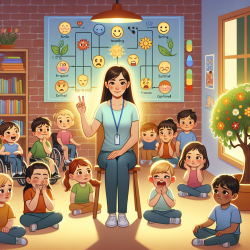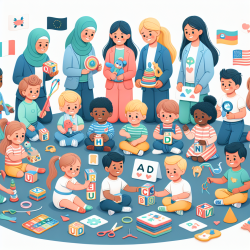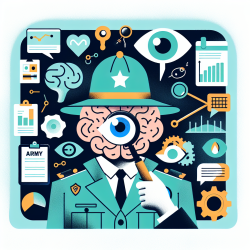Emotion regulation is a critical skill for everyone, but it holds particular significance in the realm of special education. Students with special needs often face unique challenges that can heighten emotional responses. As a Special Education Director, understanding and implementing emotion regulation strategies can be pivotal in fostering a supportive learning environment.
Understanding Your Emotions
The first step in emotion regulation is to identify and label emotions accurately. This process involves recognizing the purpose emotions serve or the needs they fulfill. By doing so, educators and therapists can help students understand what might be hindering their ability to reduce painful emotions.
Reducing Emotional Vulnerability
Reducing emotional vulnerability is about decreasing negative emotions while increasing positive ones. In the context of special education, this means creating an environment where students feel safe and supported. Strategies may include:
- Encouraging open communication about feelings.
- Implementing mindfulness practices in daily routines.
- Providing a structured and predictable environment to reduce anxiety.
Decreasing Emotional Suffering
One of the most effective ways to decrease emotional suffering is through mindfulness. Teaching students to observe their emotions without judgment allows them to let go of painful feelings rather than fighting or suppressing them. Techniques such as deep breathing exercises or guided imagery can be beneficial.
Emotion Regulation Skills for Everyday Life
The UCSF Emotion Regulation Skills Manual outlines several strategies that are particularly useful in special education:
- Identify and Label Emotions: Encourage students to articulate their feelings verbally or through visual aids.
- Understand Emotion Functions: Help students recognize why they feel a certain way and what triggers those emotions.
- Increase Positive Emotions: Integrate activities that promote joy and satisfaction, such as art or music therapy.
Prevention: Staying Out of Emotion Mind
Prevention strategies focus on maintaining overall well-being to avoid falling into what is known as "Emotion Mind," where emotions take over rational thinking. Key prevention tips include:
- Caring for the Body: Ensure students have access to proper healthcare and nutrition.
- Avoiding Harmful Substances: Educate about the effects of drugs and alcohol.
- Promoting Healthy Sleep Patterns: Encourage routines that support restful sleep.
- Encouraging Physical Activity: Daily exercise can significantly improve mood stability.
The Special Case of Angry Feelings
Anger often masks other uncomfortable emotions such as fear or inadequacy. Teaching students to backtrack and identify the initial emotion before anger took over can be empowering. Recognizing these underlying feelings helps students manage anger more effectively and respond appropriately.
The Role of Emotion Diaries
An emotion diary is a valuable tool for observing and describing emotions. By recording emotional reactions, students learn to analyze their feelings, understand triggers, and develop coping mechanisms. This practice fosters self-awareness and emotional intelligence.
The Power of Positive Experiences
Building positive experiences both short-term and long-term can enhance emotional well-being. Activities that bring joy should be encouraged daily, while long-term goals should focus on creating fulfilling relationships and personal achievements.
Conclusion
The implementation of emotion regulation skills within special education settings is crucial for student success. By understanding emotions, reducing vulnerability, and increasing positivity, educators can provide a nurturing environment conducive to learning and growth.
For more information, please follow this link.










